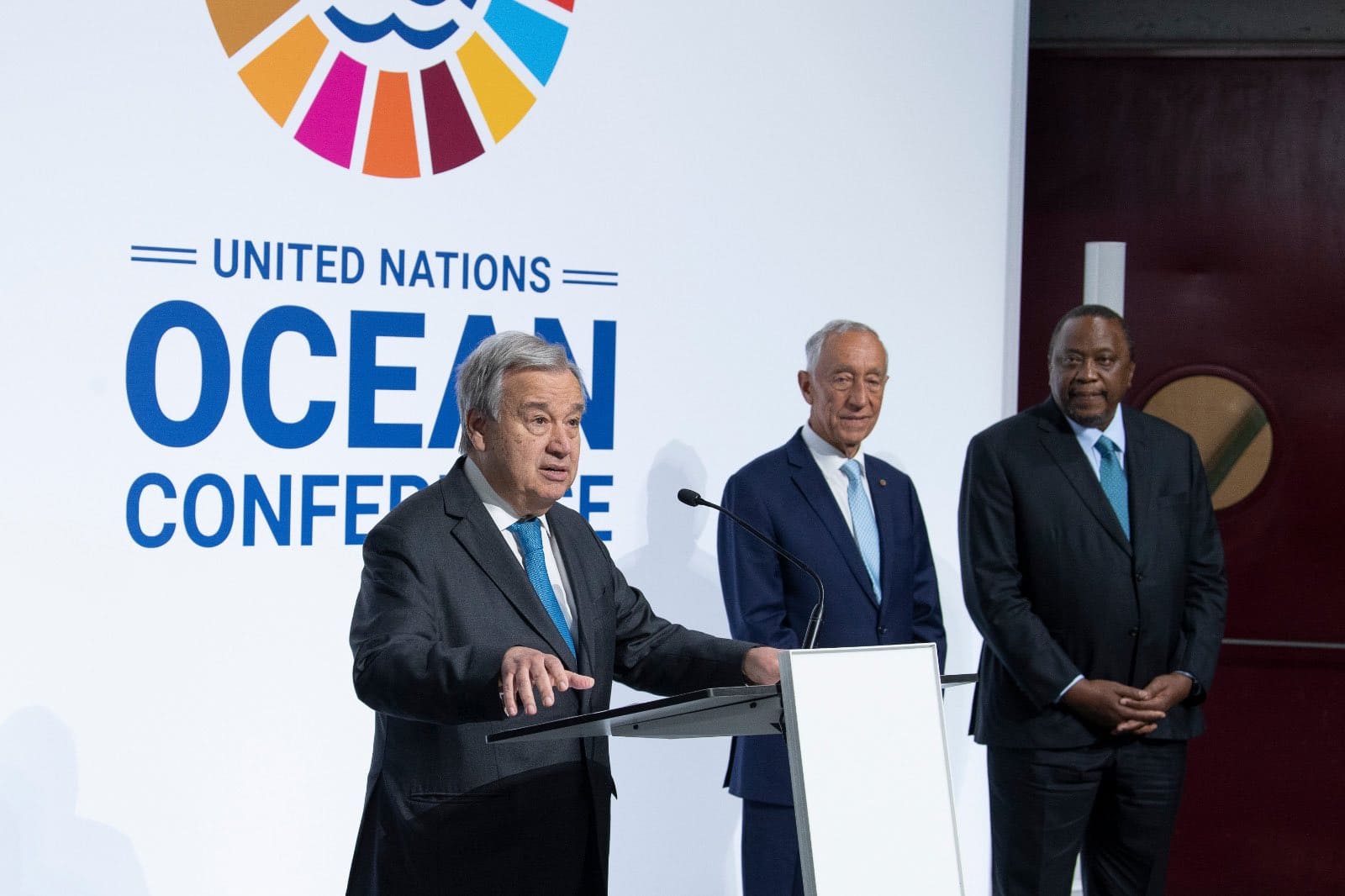The Third United Nations Conference on Oceans (UNOC3) concluded this Friday in Nice, France, with an unequivocal message: marine depths must become a global priority.
From the inaugural discourse of the Secretary General of the Him, António Guterreseven the calls of scientists and organizations, the consensus was firm: It’s time to protect the invisible.
“Underwater life begins in depths”Guterres warned, warning of the risk of these areas becoming a“Wild West”A call that has resonated in the scientific community, which insists on the fragility of deep water ecosystems and their importance to planetary health.
The Coalition for the conservation of marine depths (DSCC) He urged governments to apply two key measures: protect the submarine mountains from destructive activities such as drag fishing in the background, and decree a GLOBAL MORATORY TO SUBMARINE MINING. According to him DSCCboth practices endanger little but essential ecosystems.
The French president, Emmanuel Macron, joined this position in his initial speech. He stressed Devastor Impact of drag fishing and supported scientific initiatives such as the new Declaration on submarine mountainspresented at the conference by the DSCChe Marine Conservation Institute and the International Program on the State of the Ocean (IPSO).
UN Conference on Oceans (UNOC3)
The UN Conference on Oceans (UNOC3)held in Nice, concludes with advances to improve conservation and sustainably use the oceans. However, the ocean and coastal communities face more and more critical threats derived from overfishing, climate change and pollution, so environmentalists urges international leaders to redouble their efforts to maintain the impulse created in Nice.
With some 60 Heads of State and Government displaced To the port city, the world ocean has received unprecedented attention. During the summit, others 19 countries ratified the high seas treatywhich raises the total to 51 parts (50 countries plus EU)closer to the threshold of the 60s necessary to enter into force, allowing the establishment of high seas protected areas.
The treaty is necessary to apply the Global Biodiversity Frameworkwhich compromises countries to protect and conserve at least 30 % of the ocean by 2030 (30 × 30). Commitments on protected marine areas (AMP) assumed by countries in the UNOC3once applied, they would increase the protection of oceans from around 8 % to more than 10 % worldwide.
For its part, The Spanish government He promised to increase the marine surface to 25.7 % in 2025. In the absence of only five years by 2030, they need More measures and investments to accelerate the progress towards 30 × 30 and guarantee that AMP are managed effectively and protect themselves from destructive activities.
In Niza a series of financial commitments important. However, a considerable additional investment will be needed to reach 175 billion dollars annually that are estimated to be needed to Fulfill the objective of sustainable development 14 from here to 2030 to support solutions led by indigenous peoples and local communities that depend on the oceans and are the main protectors of their biodiversity.
The third United Nations Conference on the oceans put “stern wind” to the action for the conservation of the oceans. In niza a series of Very positive commitmentsbut the world will not reach its climatic and nature protection objectives by 2030 unless this impulse is maintained.
The situation is desperate for our ocean And only working together in collaboration with coastal communities we can get a healthy and resistant ocean for all.
Moratory of the mining exploitation of seabed
As for fishing, more than 100 countries have already ratified the agreement on fishing grants from the World Trade Organization (WTO) to stop the most harmful subsidiesas those destined for illegal fishing, overexploited populations and fishing not regulated on the high seas.
With less than ten ratifications necessary for the agreement to enter into force, environmentalists encourage the remaining states to commit as soon as possible.
More than 90 countriesheaded by France, expressed their support for a world treaty legally binding on the Plastic pollution During the conference, which constitutes a positive sign of world cooperation, but remains the necessary minimum before INC 5.2 negotiations in August.
After the failure of the previous series of negotiations in December, states must use all the necessary tools to overcome new delays and get the promised treaty.
In Niza, four other states joined the call in favor of a precautionary pause or Moratory of the mining exploitation of seabedwith which the total number of states rises to 37.
This shows that more and more governments and companies recognize that a moratorium is necessary until scientific data is available and the effective protection of the marine environment can be guaranteed.
The conference resulted in several initiatives on ocean -based climatic solutions, while 11 countries joined partners like WWF to protect climate -resistant coral reefs. But these solutions will only succeed if They address the deep causes of climate change.
From new marine protections to advances in the High seasthis conference has given a new vital impulse to the conservation of the oceans.
But, unless we address the climatic crisis and leave fossil fuels behind, marine ecosystems will continue to deteriorate. The ocean is sending alert signals: We must act before they are irreversible.
Let’s keep the impulse generated in A series To ensure that the climate conference UN COP30 In Belém accelerates the action to gradually eliminate fossil fuels and restore carbon rich ecosystems.
Stop the extinction of threatened sharks and stripes
The launch of the World coalition to Stop the extinction of threatened sharks and stripesled by the French government, was a Great advance in the protection of fundamental oceanic species. Sharks and stripes are essential for the health of the marine environment, but more than a third are threatened with extinctionlargely due to the overweight. ECOticias.com

